Ten bankers from Cambodia, India, Nepal, Sri Lanka and Taiwan participated in the “Making AML/CFT Top Priority for Banks” hosted by Fintelekt Advisory Services (Fintelekt) in Mumbai, India on March 7-9, 2020 at The Orchid Hotel.
During the two-day program, the 10 delegates had the opportunity to engage in deep and detailed discussions with experienced bankers concerning AML/CFT (Anti-money laundering/Counter financing terrorism) governance standards and operations, study emerging risk in AML, and exchange views on the best practices being recommended to improve their respective banks’ AML operations, among the many other AML related issues brought up for analysis.
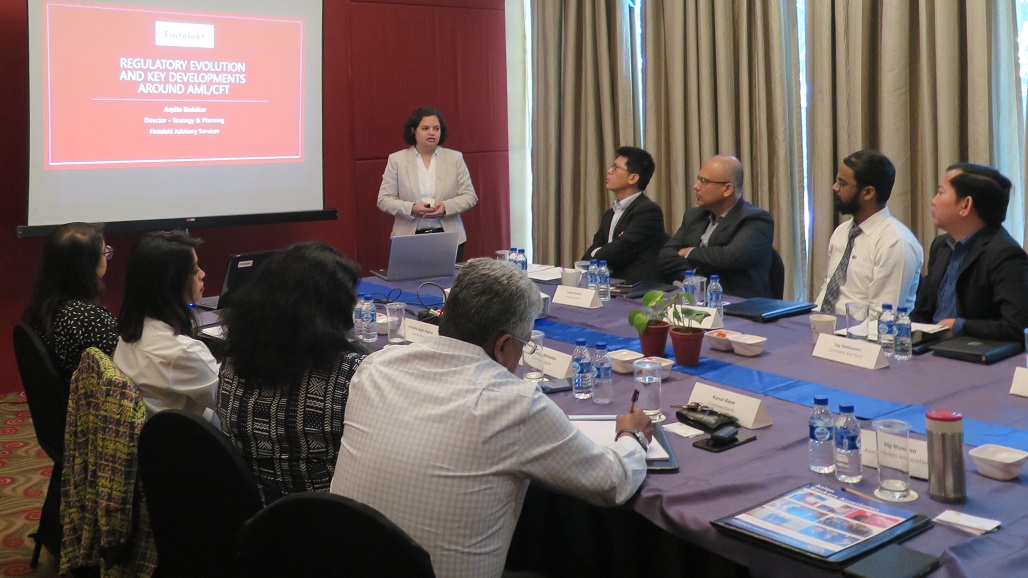
February 27, 2020
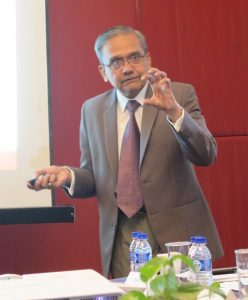 The first day started with the welcoming remarks from Shirish Pathak, Managing Director of Fintelekt Advisory Services, and Mig Moreno. Deputy Secretary of ABA.
The first day started with the welcoming remarks from Shirish Pathak, Managing Director of Fintelekt Advisory Services, and Mig Moreno. Deputy Secretary of ABA.
The program rapidly proceed with the first presentation by Arpita Bedekar, Director of Fintelekt who explained the Regulatory Evolution of AML/CFT. The importance of determining UBO (Ultimate Beneficial Ownership) was also elaborated by exploring known cases presented in the media. Another AML challenge considered was dual-use products in trade and the importance of implementing compliance under evolving regulations. Delegates were reminded of the overarching AML/CFT risks affecting banks: AML, Terrorism and cybercrime.
The second session on Emerging Risk Factors in AML/CFT & Impact on Banks given by Shafath Mujawar, faculty member of Fintelekt, presented emerging risks, the recommendations of FATF (Financial Action Task Force) and the importance of refreshing BSBC (Basel Committee on Banking Supervision) recommendations given the complex and extensive set of issues affecting AML operations, as well as the laws personally affecting AML banking operators.
The third speaker was Pramod Khandelwal, also a faculty member of Fintelekt, and a real veteran in AML banking who gave an extensive tour on the Best Practices needed for AML/CFT Governance and the need to Balance Business and Compliance priorities.
Mr. Khandelwal drilled on the importance of 3 key issues in AML: (1) Identifying cases, (2) Performing due diligence, and (3) Monitoring while maintaining an objective view of the country level risk where the banking transactions are executed. He also reminded the participants that AML/CFT is fundamentally about assessing the risk, detecting terrorism related transactions and fraud.
February 28, 2020
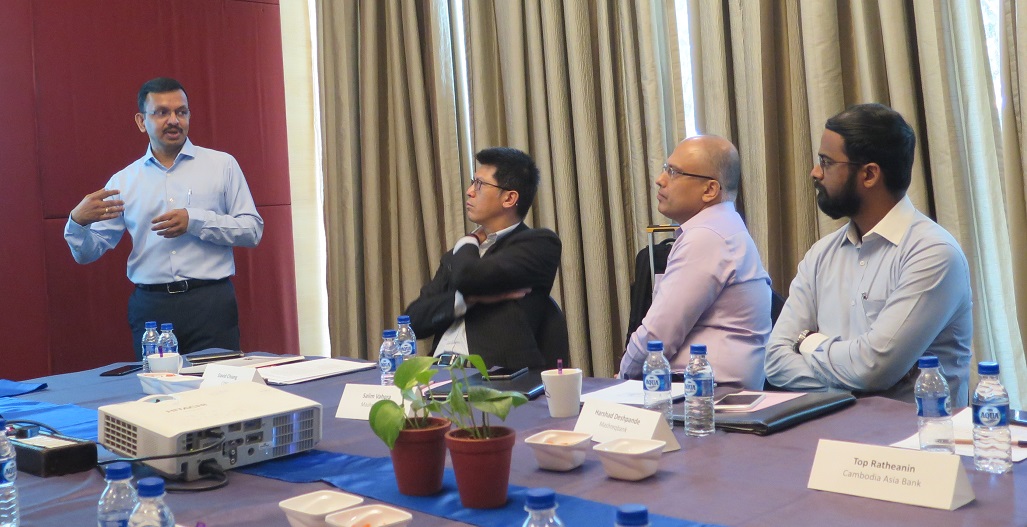
The second day started with a presentation on Transaction Monitoring: Making the AML/CFT Function More Efficient by Sharad Nair, MLRO from Axis Bank. During her speech she explained the four pillars of transaction monitoring (1) Negative screening, (2) Transaction monitoring and analysis, (3) Customer risk categorization, and (4) Regulatory response.
The second presentation of the day was on UBO (Ultimate Beneficial Ownership) by Debmalya Maitra, Senior Director BFSI – Choksi Group & Partner, who explained the challenge of finding UBO among companies with extensive cross-sharing, family ties, and international operations. It is recommended that in complex cases, risk assessment should not only be aided by software providers but also by media reports that could help further detail the UBO’s status.
The third presenter was Rohit Kaul, regional lead of Refinitiv, a software provider who talked about the use of software searches to find Trends in financial crimes and risk propositions to effectively narrow the area of interest because out of 1,000 suspicious transactions, 50 are referred to law authorities. However, only 5 of those 50 might end up being investigated. Moreover, very few investigated cases are prosecuted.
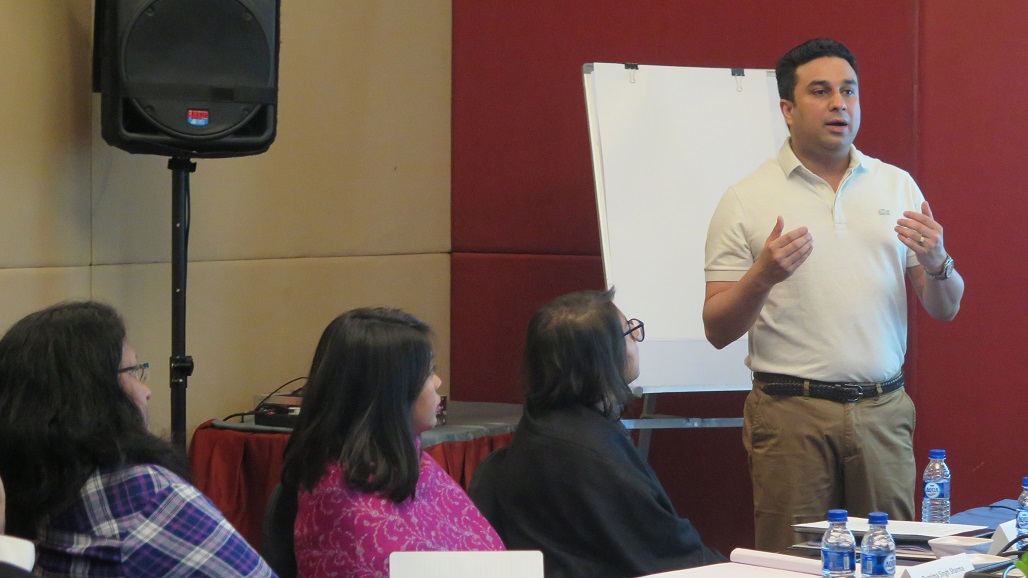
The last presenter was Suresh Vytla, Accuity’s country manager, who discussed the necessity of Screening Trends to improve efficiency in AML/CFT detections because given the large number of transactions, there are still many transactions that go undetected or are misidentified. The final recommendation was that banks need to constantly fine-tune their approach to screening their customer base.
The highlight of the two-day short term visiting program in Mumbai were the lively discussions among speakers and participants under an atmosphere of camaraderie. The presentation of real cases and free exchange of views facilitated a fruitful learning environment during the two-day program in Mumbai.
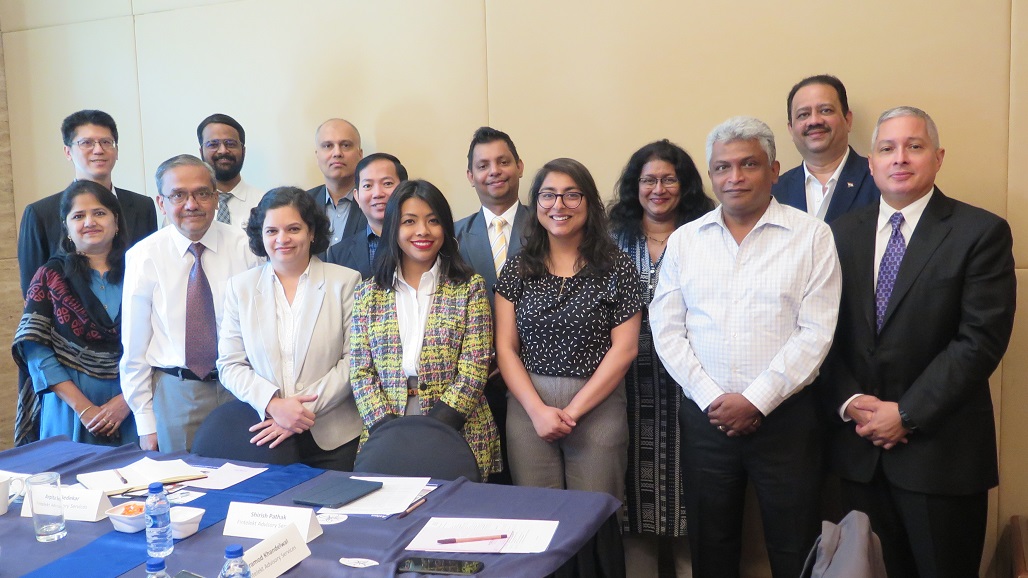

Leave a Reply